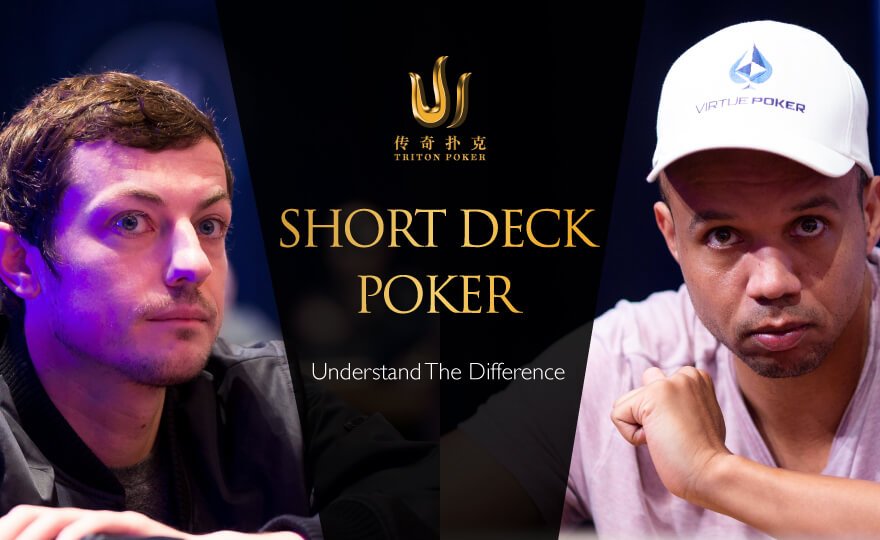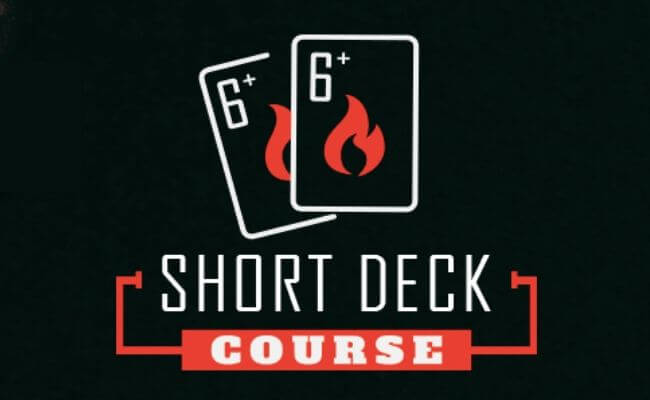Short Deck In Poker
- Short Deck Tournament
- Pokergo Sign In
- Short Deck Hold'em
- Short Deck Poker Online
- Short Deck Poker Strategy
Short deck hold’em continues to grow in popularity, both in cash game and tournament format. This summer, the World Series of Poker added a $10,000 buy-in short deck hold’em event to its schedule of gold bracelet events, plus a handful of other venues around town are including the game in their summer offerings. 🔱 The likes of Tom Dwan, Rui Cao, Timofey 'Trueteller' Kuznetsov Tan Xuan, and Mikita Badziakouski sat down for a Short Deck Cash Game session during #Trito. What is “short-deck” poker? This is just one of the things Paul Phua discusses with Phil Ivey in the latest Paul Phua Poker School video, along with strategy tips for beginners. Do beginners have an easier time at poker these days? In the latest Paul Phua Poker School video, we welcome back the great Phil Ivey.Last time we talked about the thrills and challenges poker holds, even for a. Short Deck is a new and exciting poker format that’s threatening to take the poker world by storm. With high rollers taking a great liking for it, many casual players will likely follow, wanting to give it a try as well. Short-Deck Poker is also known as Six Plus Poker because the lowest card in the deck is the six. The game can be played with anywhere from 2-10 players but is usually played with six players. Short-Deck is unique from other games not only because of the special deck but also how the rankings work.
Short Deck Hold'em is a variant of Texas Hold'em played with a short deck of 36 cards. The deck contains no 2's, 3's, 4's, or 5's. Short Deck uses Short Deck Hold'em hand rankings which differ from normal high hands.
Short Deck Hold'em Poker Gameplay
A hand begins with all players placing a forced bet, known as the ante. The player with the button posts a double ante.
Each player is dealt 2 hole cards from a short deck of 36 total cards.
A round of betting occurs. Starting with the first player clockwise left of the dealer, each player has an opportunity to call or raise the current bet, or fold and exit the hand.

Short Deck Tournament
When this betting round is complete, the flop comes: 3 community cards are dealt to the center of the table.
Another round of betting occurs, starting with the first player clockwise from the dealer. When this round is complete, the turn comes: 1 additional community card is dealt to the center of the table.
Another round of betting occurs in the same way. When this round is complete, the river comes: 1 final community card is dealt to the center of the table. A final round of betting occurs.
If two or more players remain in the hand, a showdown is held and the players’ hole cards are compared.
The pot is awarded to the best Short Deck hand, or split in the event of a tie.
The hand now complete, the dealer button moves clockwise and the next hand begins. Players in Short Deck are not required to use a certain amount of hole cards to form their best 5-card hand, and may play 3, 4, or even all 5 of the community cards.

Short Deck Scoring
In Short Deck games, 2's, 3's, 4's, and 5's are removed from the deck, leaving 36 cards instead of the normal 52 cards.
Because there are less ranks in the deck, several of the rules for scoring hands change:
Pokergo Sign In
- Three of a kind beats a straight.
- A flush beats a full house.
- The hand A6789 is a straight, and is the lowest straight.
The order of hand strength, from weakest to strongest, is therefore: High Card, One Pair, Two Pair, Straight, Three of a Kind, Full House, Flush, Four of a Kind, Straight Flush, Royal Flush.
Short Deck Hold’em is played with No Limit betting.Table Of Contents


Over the course of the past two-plus months, we've looked over different aspects of short deck hold'em in an attempt to begin and accelerate the learning process in this young game. We've covered the rules, the odds, strategies for both preflop and postflop play, and examined hands played by some of the best players in the world.
Today, we'll wrap up the series with a look at some industry experts' thoughts on the longevity and sustainability of the format in the modern poker scene, particularly through the lens of tournament play.
Leading the Way
Short Deck Hold'em
While short deck has slowly filtered further into the poker mainstream after originating in highly private, nosebleed-stakes cash games in Asia, there's no question one venue has been a step above the rest in encouraging and nurturing its growth — ARIA.
Short Deck Poker Online
Not only has ARIA introduced short deck into its high-stakes tournament series Poker Masters and U.S. Poker Open at the PokerGO Studio, but short deck events routinely run in the $200 price range in the main poker room.
To figure out how and why ARIA has been at the forefront of short deck's expansion, PokerNews corresponded with Sam Simmons, president of Poker Central, which runs the made-for-streaming events at the studio.
Simmons says short deck is a natural fit for TV in more than one way.
'Not only is the game exciting with high variance and drastic swings, but short deck events allow PokerGO viewers the opportunity to watch the best poker players in the world attempt to 'solve' this relatively new variant in real time,' Simmons explains.
Short Deck as a Tournament Game
ARIA has reached back into the old school for their tournament structure in the high-stakes events, introducing a 'triple chance' format that gave players three starting stacks with the option to play as many as they wanted at a time. Players could choose to hold one or two stacks in reserve up until the close of registration, at which point they'd automatically come into play.
When the World Series of Pokerannounced a short deck event would be included on the 2019 schedule, they followed this lead with a 30,000 stack and a 30,000 add-on.
In practice, the reasoning would seem to be that because it's frequently correct to get stacks in — recall that equities in short deck are very close — operators don't want players to have a miserable experience of sitting down, getting all in and busting, then reentering over and over.
Isaac Haxton told PokerNews he's a fan of the triple stack, and Simmons says the feedback from the tournaments has been 'immensely positive.'
Haxton says he definitely sees short deck as a viable tournament game. Like Somerville, he equates it to PLO but points out it actually has some advantages.
'It has some things in common with pot-limit Omaha with closer equities leading to weird bubble play,' says Haxton. 'But in contrast to Omaha at least you can go all in, which mitigates some of the really severe punishment that shorter stacks take on the bubble. They can at least put all their chips in the middle rather than open and either get flatted or three-bet and have to play from there.'
Short Deck Going Forward
While Somerville said on a recent appearance on PocketFives' podcast The Fives that he feels short deck is the future of poker, not everyone is so rosy about its outlook.
Kane Kalas, serving as commentator for the Patrik Antonius Poker Challenge, said that because there are fewer cards in the deck, he sees the players who really dive into the game solving it more quickly than no-limit hold'em.
As a counter to that, Somerville points out that the frequency of multi-way pots makes the game deeper than it at first appears.
Meanwhile Haxton says the biggest issue he's seeing so far is the structure of registration and starting stack depth.
Short Deck Poker Strategy
'I think that at some point there's going to be a shift towards closing registration earlier in short deck tournaments,' says Haxton. 'I think right now, you can enter and the tournament's in the money an hour later. The late registrants are getting a decent advantage there. I think short deck tournaments are going to shift toward starting deeper and closing registration earlier to mitigate that.'
Simmons says Poker Central remains committed to short deck, and he has high hopes for the game.
'As short deck becomes more mainstream with lower buy-in price points allowing additional players greater access to the game, we expect it to become one of the core variants across the poker calendar at a variety of stakes,' he says. 'We expect the game to be a staple of PokerGO live events for years to come.'
If Simmons and Somerville are right, then short deck will be coming to a card room near you. Maybe sooner, maybe later, but eventually, poker players everywhere may have access to this increasingly popular game.
Hopefully, when that day comes, this 10-part series has helped give you a solid base of knowledge as you begin your own journey in short deck.
Tags
tournament strategyshort deck hold'emsix plus hold'emIsaac HaxtonKane KalasJason SomervilleARIAPokerGOPokerCentraltournament structuresRelated Players
Isaac HaxtonJason SomervilleKane Kalas